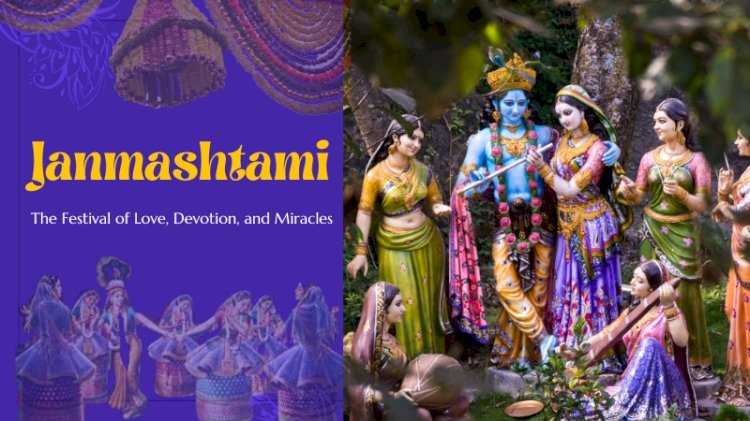Janmashtami: The Festival of Love, Devotion, and Miracles
Janmashtami, the celebration of Lord Krishna's birth, is a harmonious symphony that unites India in devotion and love. Rooted in the enchanting tale of Krishna's birth, the festival symbolizes the victory of good over evil. Celebrated with unique traditions in different regions, it showcases the diversity and unity of India's rich cultural heritage. Janmashtami, more than just a religious festival, is a timeless reminder of love, righteousness, and devotion, resonating in the hearts of millions as a beacon of hope.
By Shreya Rajvanshi Gangal

India, a land of diverse cultures and traditions, resonates with the enchanting melody of Janmashtami each year. This auspicious festival celebrates the birth of Lord Krishna, the eighth incarnation of Lord Vishnu, with unmatched enthusiasm and devotion. Janmashtami is not just a celebration; it is a divine symphony that unites people from various regions, backgrounds, and beliefs in a harmonious celebration of spirituality and love.
The Divine Story
Janmashtami is rooted in the enchanting tale of Lord Krishna's birth, which unfolded over 5,000 years ago in Mathura. The evil king Kansa, Krishna's maternal uncle, had imprisoned his sister, Devaki, and her husband, Vasudeva, due to a prophecy that their eighth son would be the cause of his demise. Yet, the divine will prevailed as Krishna was born in a prison cell amidst a thunderstorm. To save him from Kansa's wrath, Vasudeva carried baby Krishna across the flooded Yamuna River to safety in Gokul, where he was raised by foster parents, Yashoda and Nanda. This miraculous birth is celebrated with immense joy on Janmashtami.
Significance of Janmashtami
Janmashtami holds profound significance as it symbolizes the victory of good over evil, light over darkness, and love over hatred. Lord Krishna, often depicted as a playful and mischievous child, taught humanity invaluable lessons through his life and teachings. His divine wisdom in the Bhagavad Gita continues to inspire people to live a righteous and meaningful life.
Celebration Across Regions
Janmashtami is celebrated with great fervour across India, with each region adding its unique touch to the festivities:
- Dahi Handi in Maharashtra: In the western state of Maharashtra, Janmashtami is marked by the 'Dahi Handi' tradition. Young enthusiasts form human pyramids to reach and break an earthen pot filled with curd and butter, symbolizing Krishna's love for dairy products.
- Raas Leela in Uttar Pradesh: The birthplace of Lord Krishna, Mathura, and nearby Vrindavan come alive with colourful processions, temple decorations, and raas leela performances, depicting the divine love between Krishna and the gopis.
- Rasa Lila in Manipur: In the northeastern state of Manipur, Janmashtami is celebrated with intricate dance dramas known as 'Rasa Lila,' where the life of Krishna is portrayed through graceful dance performances.
- Sri Krishna Jayanti in South India: In the southern states of Tamil Nadu, Kerala, and Karnataka, Janmashtami is known as 'Sri Krishna Jayanti' and is celebrated with devotional songs, dance, and elaborate temple decorations.
Conclusion
Janmashtami is more than just a religious celebration; it is a timeless reminder of the universal values of love, righteousness, and devotion. This enchanting festival transcends geographical boundaries and brings people together in a melodious celebration of life and spirituality. As the mellifluous notes of Krishna's flute continue to resonate in the hearts of millions, Janmashtami remains a poignant reminder of the enduring power of faith, love, and the triumph of good over evil.
In a world often filled with chaos and division, Janmashtami stands as a beacon of hope, uniting people in the sweet embrace of Krishna's divine love.
What's Your Reaction?



















